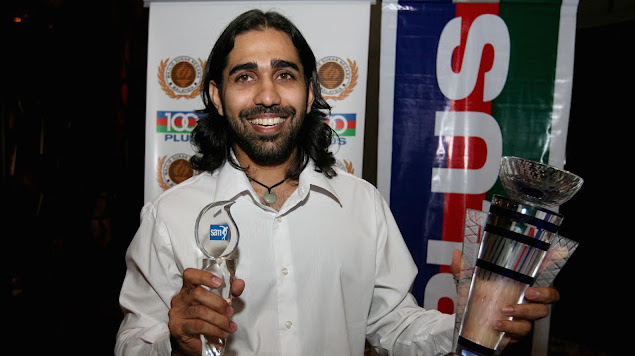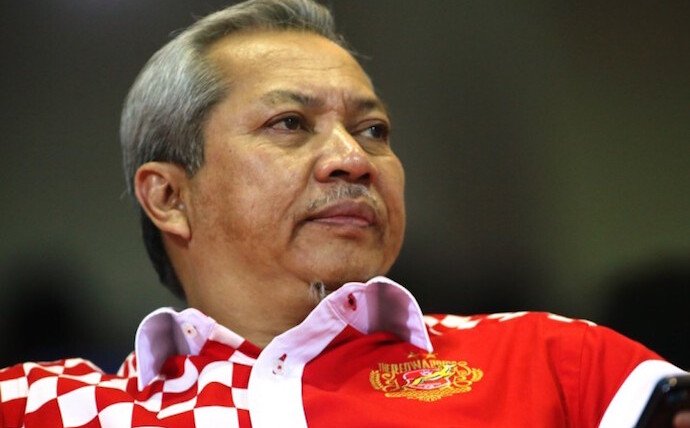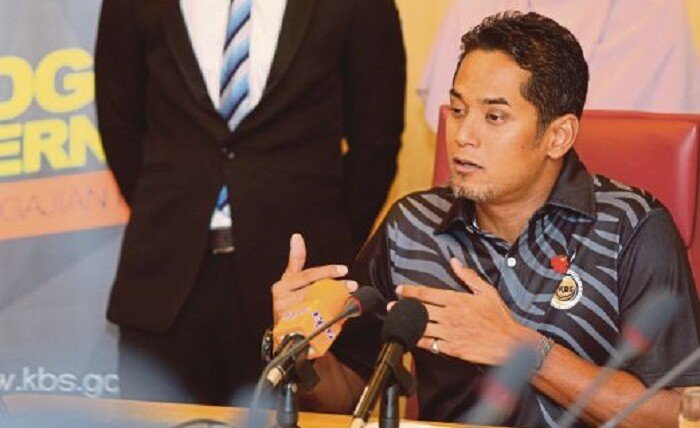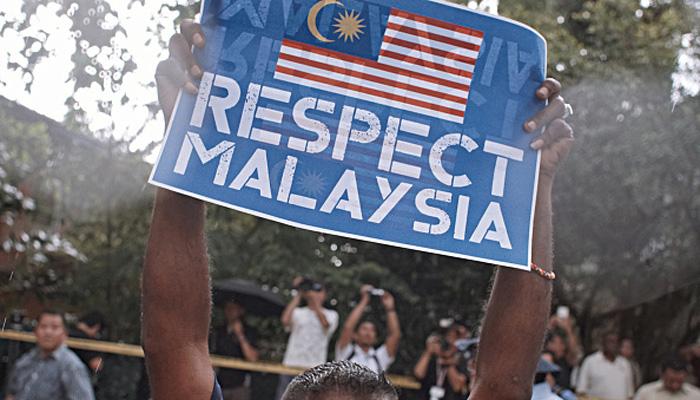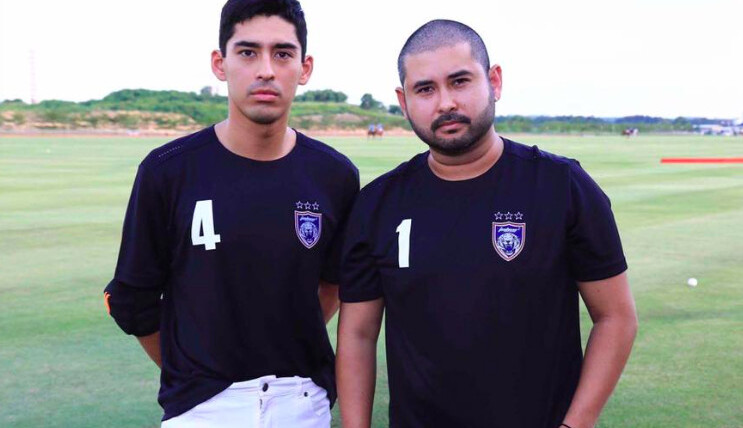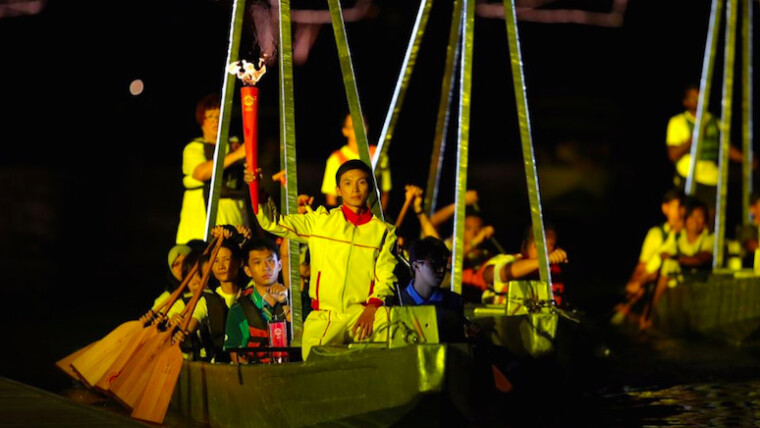Malaysian sports never shies away from controversy, be it ridiculous ones or consequential ones with tangible trickle-down effects. No doubt, the people within the nation are passionate about the athletes and the sport in itself, but it goes without saying that various factors like mismanagement, never-ending bureaucratic issues and even sheer incompetence continues to plague the Malaysian sporting scene.
While FourthOfficial.com will continue to champion the beautiful side of sports, we are equally committed to expanding discourse on various sporting issues. And when it comes to speaking out, few individuals do it better than Malay Mail executive editor, Haresh Deol. So we caught up with him for a quick chat on recent headlines in Malaysian sports.
FO: A group of fans recently unveiled a tifo that depicted a dog wearing a suit, cradling another smaller dog in one arm. With FAM’s logo on the suit, it was relatively clear it was a method of dissent against various different things done by nation’s footballing body. At the same time, a certain section of Selangor fans protested against their team’s management by hanging banners in various areas across Shah Alam, besides allegedly splashing paint on the entrance of the Selangor FA headquarters.
What are your thoughts on these incidents? Are these methods a legitimate form of dissent and what’s the yardstick as to what’s acceptable and unacceptable with regards to fans being able to showcase their thoughts?

HD: While fans are allowed to be emotional, one must not cross the line. Fans must realise the action of unveiling a tifo depicting a dog wearing a suit with FAM’s logo on the suit constitutes to defaming the official of a national body. Splashing paint at the Selangor FA office is causing destruction to a property belonging to another. Such methods are NOT a legitimate form of dissent. There are may ways for fans to voice their opinion, including by boycotting the matches. But a more educated approached would be to pin point the issues and suggest possible solutions. At the same time, the respective FAs must ponder to why their fans are disgruntled and how can they manage the situation. This is an element where most of our officials and organisations severely lack — in managing perceptions and emotions. They must remember the sport belongs to all.
FO: FAM recently signed massive deal with MP & Silva, allowing them to be their global advisor for media and commercial rights. But fans are still unclear as to how this changes the local football landscape. Your thoughts on the repercussions of the deal?
HD: It is too soon to judge how the deal will turn out. Much has been said and written about the deal. Irrespective of the company, FAM had plenty of time to discuss and decide about the deal yet they waited for the eleventh hour before committing to MP & Silva. Some took issue with the percentage of money which will be distributed between FAM and the state FAs. In short, such a decision and the details surrounding it should have been made public in advance. FAM must realise it is not a Sdn Bhd. It is a public entity.
FO: Local fans also seem to be frustrated with the coverage of Malaysian football on television. RTM, TV3 and TV9 have showcased matches so far, but their pre-match and post-match coverage (or rather the lack of it) has sparked various comments from fans on social media. As a fan yourself, would you agree with the rest? Shouldn’t these channels strive to upgrade their services over the course of the year?
HD: One must understand the money spent in not only airing live matches but the overhead involved in producing a pre and post match coverage. We’re talking about paying hosts, cameramen, producers etc. We must also see the return of investment, as in if television stations are able to recuperate the cost through advertisements. It is even more interesting this season as we wonder how much television stations are spending on each live match. As for pre and post match coverage, most fans will admit they only want to watch the matches, instead of listening to commentators or hosts speak about tactics before or after a match. Every television channel must strive to upgrade their services or they will suffer the wrath from the fans.
FO: The Badminton Association of Malaysia (BAM) is currently undergoing a mini crisis of their own and there appears to be a mass exodus of players as well, with Lim Khim Wah and Hoon Thien How joining several other names in quitting BAM. What exactly needs to be done to salvage the ‘sinking ship’ in the form of BAM?
HD: When a mass exodus occurs, the typical reaction would be to blame the management. Perhaps it could be the doing of the management, or the series of resignations could be due to players feeling the heat for not being able to live up to certain standards. Just like any organisation, no one is indispensable and perhaps this could turn out to be a blessing in disguise for BAM — to leave the coaching of players to the state affiliates or clubs and they in return can concentrate on the organising tournaments and only gather the players before any major tournament.
Many tend to be oblivious about the roles played by national associations, state affiliates and clubs. Instead of working together, they see each other as threat. BAM cannot monopolise everything and must start handing some responsibilities to the state BAs and clubs. The state BAs and clubs should be tasked to produce athletes in a bid to provide a larger pool of talents. The onus should not lie on one single entity alone for that will cast the presumption that the single entity is superior than the others. Perhaps, this will then salvage Malaysian badminton.
FO: Last year, a thorough investigation revealed that the Malaysian National Cycling Federation (MNCF) had severe flaws in its management of funds leading to a temporary suspension by the Sports Commissioner’s office. Khairy Jamaluddin then went on to say that they will no longer be given the full autonomy to manage their funds. Considering that this has been happening for a considerable amount of time, shouldn’t the MNCF leadership be held accountable?
HD: Yes. The problem in Malaysia is that the words transparency and accountability are alien to most of us. If such were to happen in nations like South Korea or Japan, those involved would quit from the organisation, regardless if they were directly linked to the episode or otherwise. In Malaysia, we have what I like to call “hangers” and they will continue to hang on, paying little attention to the sport itself. Those responsible must be held accountable. One must remember most organisations rely on funds from the Youth and Sports Ministry. These are tax-payers money and every sen must be accounted for.
FO: The Malaysian Aquatic Center is in a pretty bad shape and divers have consistently been complaining of the horrendous conditions of facilities available over there. But according to Mailsport, Malaysia Stadium Corporation (MSC) chief executive officer Ahmad Helmi Harun claims that he was never informed of the matter at hand. Is this sheer ignorance or indication of a failed system?
HD: It smacks sheer ignorance. Just take a walk in and around the stadiums and one can find many problems surrounding the facilities. Why must the chief executive officer be informed before the equipment is fixed? Why can’t those tasked to maintain the stadium take it upon themselves to fix the equipment? If major renovation works are required, than the stadium corporation should discuss it with the national coaches or national associations to ensure training is not disrupted. It boils down to communication between the stakeholders and there seems to be lack of it.
Haresh Deol is an award-winning journalist and is currently the executive editor of Malay Mail. He also runs a popular blog called ‘Foul!‘ and you can also follow him on Twitter.
Other posts by FO Newsdesk

